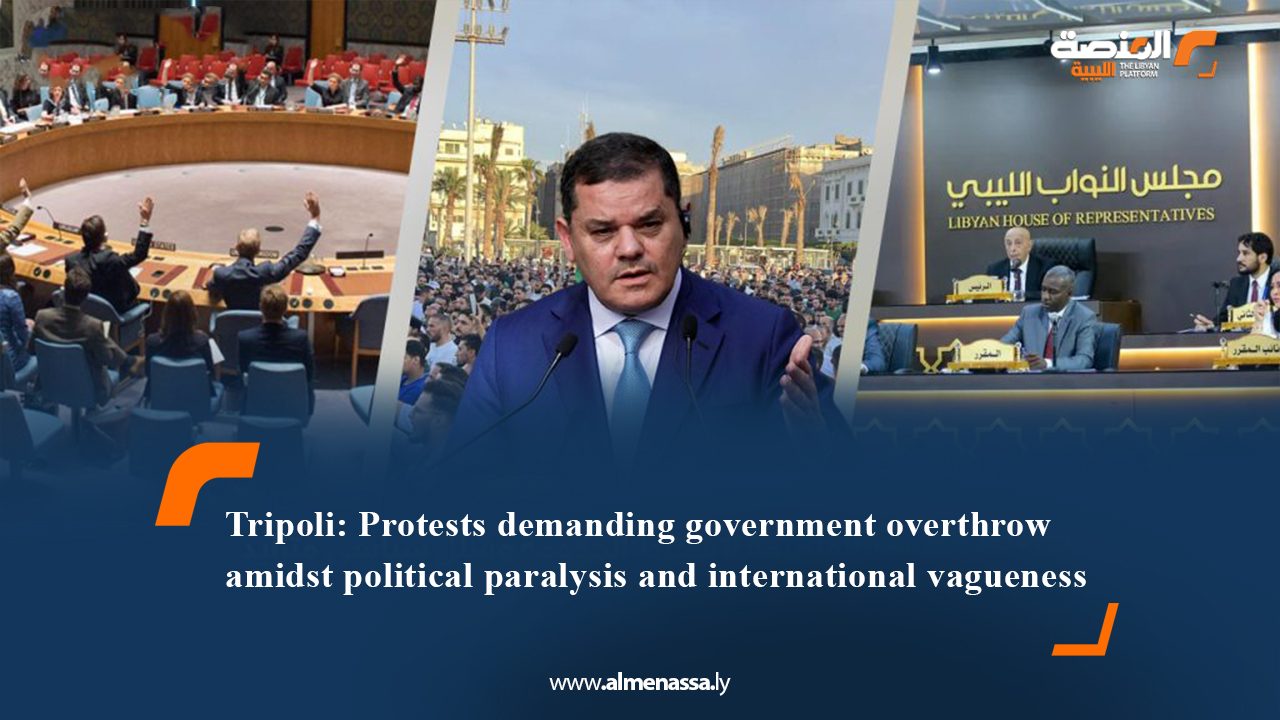The pace of political events in Libya is accelerating as the internal crisis enters a new phase of complexity, marked by increasing disagreements among political entities and escalating popular protests demanding the overthrow of the Government of National Unity (GNU) led by Abdul Hamid Dabaiba. Amidst these developments, criticism of the international community’s role and the UN mission is intensifying.
Consensus crisis and lack of international recognition
Saad bin Sharada, a member of the High Council of State, asserted that the international community has become a genuine impediment to achieving Libyan internal consensus. He noted that efforts to form a new government face the challenge of lacking international recognition. Bin Sharada added that the role of both the House of Representatives and the High Council of State effectively concluded with the issuance of electoral laws via the (6+6) committee, considering that the next step should be executive, not legislative.
For his part, Jaballah Al-Shaibani, a member of the House of Representatives, stated that the Libyan crisis has become hostage to international understandings, particularly the interests of the permanent members of the Security Council. He affirmed that the UN mission merely manages the crisis and does not seek to resolve it, indicating that internal Libyan consensus has become elusive.
Rising anger within parliament
The division within the House of Representatives has visibly resurfaced, with a significant number of members, particularly representatives from the Western region, absent from an important session dedicated to hearing the programmes of prime ministerial candidates.
MP Jalal Al-Shuwayhdi stated that this absence portrays these representatives as disconnected from the suffering of their constituents, asserting that the House does not oppose the formation of a unified government, but rather the dispute lies in the mechanism of its formation and ensuring its international recognition.
Ammar Al-Ablaq, a member of parliament, clarified that the absence of local consensus and the presence of Dabaiba’s government, centred in Tripoli, hinder the formation of a new government. He noted that Parliament Speaker Aqila Saleh was frustrated by the widespread absence of MPs despite invitations being extended to well-known candidates.
Threats and protests pressure the Political Landscape
Amidst discussions of potential sanctions against absent MPs, MP Ali Al-Tikbali denied any genuine intention to activate these sanctions, indicating allegations of threats directed at some MPs to prevent their attendance at sessions. In a post, he affirmed that Abdul Hamid Dabaiba’s political phase has ended, calling on citizens to continue demanding change.
Conversely, Abu Bakr Marwan, spokesperson for the Souq Al-Jumaa movement, announced the continuation of peaceful popular protests and the initiation of civil disobedience until Dabaiba’s government is overthrown and held accountable. He explained that the movement, during its meeting with the UN mission representative, presented a proposal to replace all current political entities with a constituent council formed through a new political dialogue that would oversee the transitional phase.
Warnings of a fragile security situation
Human Rights Watch warned of the fragile security situation in the capital, Tripoli, following the recent clashes witnessed in the city. Hanan Salah, Associate Director for the Middle East and North Africa division, stated that armed groups show blatant disregard for civilian lives, indicating that the danger persists unless fundamental issues related to armed group activity and lack of accountability are addressed.
Libya is at a highly sensitive political and security juncture, amidst the failure of political entities to agree on forming a unified government, escalating popular protests, and the continued absence of guarantees for international recognition of any political outcomes. While the Libyan street remains the new player asserting itself on the scene, questions arise about the current political class’s ability to save the country from division and chaos.


